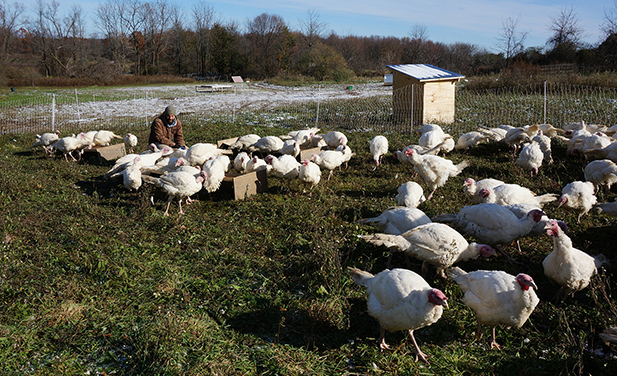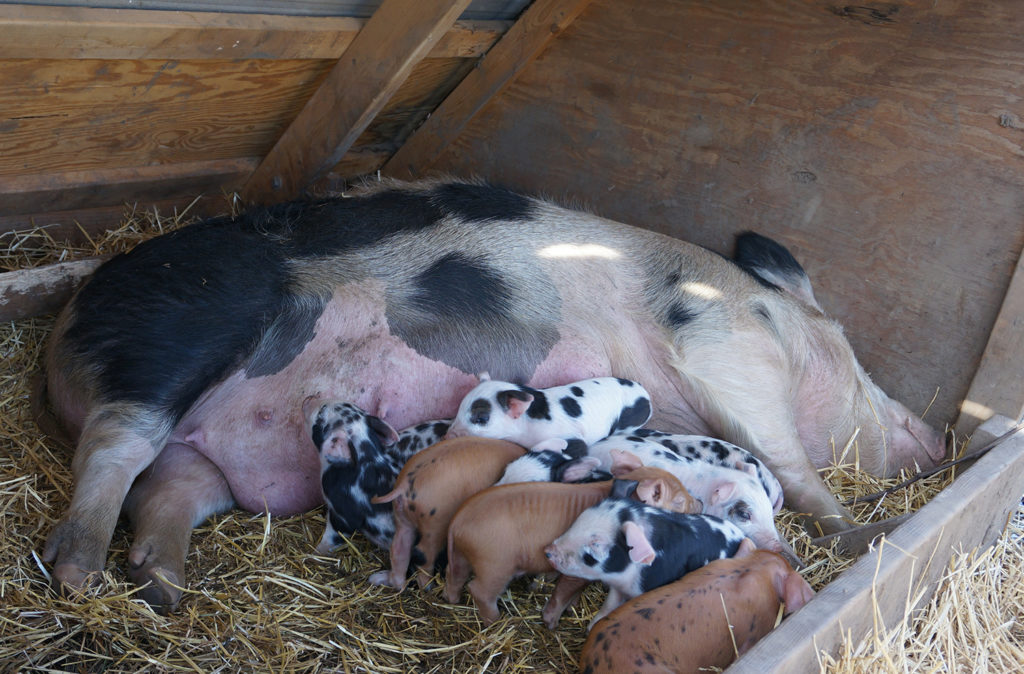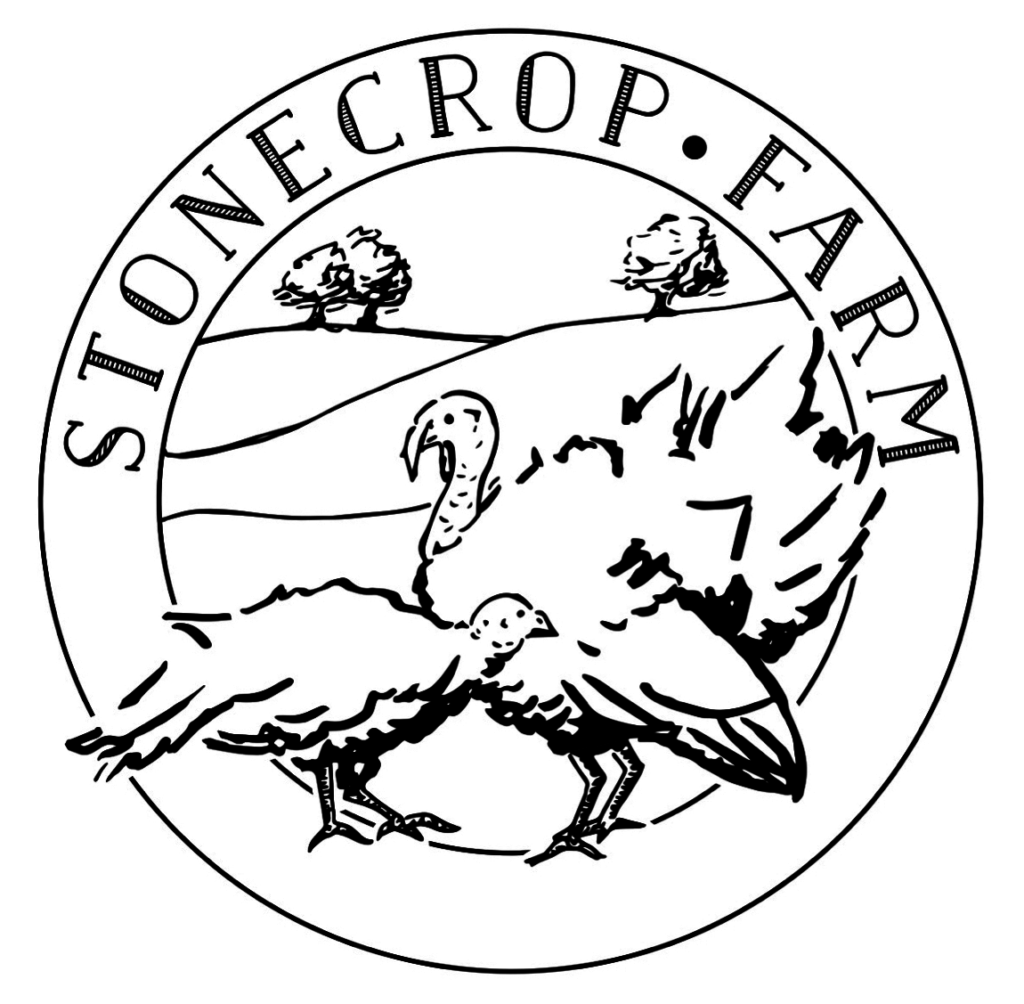A fine feathered feast: Stonecrop Farm interview
Canadice Press –

Be it corrupt politicians or unsavory entertainment entities, there are certainly plenty of groups out there hoping for a pardon these days, or at least some leniency. As the next media storm flashes across the screen and your sympathetic tendencies cast a cautious eye, take a moment to remember another group that is more worthy of some attention this time of year – Turkeys.
Beginning in 1940, US Presidents periodically offered a reprieve to live domestic turkeys, presented to them at the White House by the National Turkey Federation and others. In 1989, George H.W. Bush, became the first president to officially “pardon” a turkey, in what has remained as a yearly Thanksgiving tradition.
Perhaps such formalities offer some small consolation to the lucky turkeys allowed to live out their lives in luxury but the reality is that turkeys are big business, especially this time of year. The United States is one of the largest consumers of turkey – the world leader is Israel – and on Thanksgiving alone we Americans will consume around 45 million birds for our annual feasts.
So popular is the bird that Americans nearly drove the wild turkey, Meleagris gallopavo to extinction. The turkeys of today are a far gobble from the wild bird that first made festive the holiday gatherings of our puritan forefathers, and mothers. Modern turkeys are bred for rapid weight gain, and their body size puts them at a severe evolutionary disadvantage.
That turkeys deserve a pardon is undeniable, given their historic past and transition to a Thanksgiving favorite. Nonetheless, Thanksgiving turkey is a tradition likely to endure, and a full pardon is unlikely. Despite the inevitable, there are ways to foster leniency in this case; unlike many of those from other groups looking to get off the hook, turkeys are innocent. One group that is looking to help turkeys and a host of other animals consumed for meat live happier lives is sustainable, free-range farmers. Not only are the animals grown in these smaller farm environments raised more humanely, they also taste better and are better for you.
Having been a vegetarian for 13 years before raising my own chickens, I am already convinced that locally produced and humanely cared for poultry is without a doubt the only way to go. My experience is, nonetheless, anecdotal and limited to my small flock experience.
I do know that being a meat farmer is not easy and thought it best to let a farmer involved with turkey (and hog) farming share his experience and expertise. Owl had the opportunity to follow up with farmer Greg Hartt as he busily wrapped up his farm’s 2017 turkey growing season and prepared for Thanksgiving.
There are many area producers and growers, and doing research to find local farmers who meet your needs is key to locating the best options for your area. We discovered Stonecrop Farm last season when some neighbors were looking for a local free-range producer. We purchased a turkey from Stonecrop Farm last year, and, well, it was delicious and prompted us to again contact them this season for turkey, and a follow up interview.
Owl Light News:
How did you become interested in organic / sustainable farming?
Greg Hartt:
I grew up in Troy, NY (near Albany) and had no connection to farming until after college, where I studied chemistry. As part of my preparation for an environmental research fellowship, I worked a season on a diversified family farm growing vegetables, raising pigs and pastured poultry….and loved it! I continued on to graduate school for a PhD in chemistry and quickly realized that I actually wanted a career in agriculture. After working on farms in the Rochester area for a few years, I started Stonecrop Farm with my wife, Jenney, focusing on pasture-raised livestock. Working outside, seeing a tangible result at the end of the workday, interacting with a variety of animals, and feeling good about growing good food for the community all contribute to our love of farming.
Owl:
What are some realities you have encountered as well as some successes you have seen as you have moved forward?
Greg:
One of the biggest realities has been the challenge of being on new, raw land. When we bought our property, it had no infrastructure and had not been farmed for at least 15 years. The brambles, autumn olive, and other invasive species were taking over and it has taken a lot of work to begin the process of turning our fields into high quality pasture. Fortunately, using livestock to renovate a field is one of the more efficient ways to do that. Lower fossil fuel input, lower labor for the farmer, lower feed cost while the animals are foraging for parts of their diet, amazing influx of soil fertility from the animal manure.
Owl:
What are the advantages of raising, and eating meat that is sustainably cared for on pasture?
Greg:
From an ethical and animal welfare standpoint, I can’t imagine raising livestock anywhere other than on pasture. When you see a flock of turkeys or a herd of pigs move to new paddocks, you know that they’re meant to be outside foraging. Their excitement is palpable. One of the cornerstones of organic livestock production is to raise them in a setting that allows them to express their natural behaviors, and we strongly believe that means being outside on pasture. From the standpoint of the land, we’ve seen significant improvements in our soil and forage health after running several flocks of turkeys through our fields, which were previously conventionally farmed and then left vacant for 15 years. And with regard to human health, as farmers we are much healthier avoiding ammonia filled barns or managing huge manure piles. When our animals are on pasture, they distribute the manure so that we don’t have to. For our customers, we’ve found scholarly articles showing nutritional benefit (vitamin A, E, omega-3 fatty acids) from pasture foraging in chicken eggs, but I have not had time this summer to get into the research on the meat from pasture raised turkey, so I can’t say it with authority, but I would infer a nutritional benefit in pastured turkey from other research I’ve read.
Owl:
How does what you, and other sustainable producers of agricultural goods, tie in with the larger global issues facing humans and the many species impacted by our actions? What direction would you like to see us move in and what advice might you offer others in respect to a global world perspective?

Greg:
I think that one of the biggest things that we face as producers and consumers is expanding our understandings of the true cost of the food we eat. Because consumers are so detached from the food system right now, people don’t understand what it costs to produce food and how much it costs to give a farmer a living wage. They also don’t understand that the low prices for turkeys in the grocery store are deflated because of the birds’ awful living conditions and government subsidies to large-scale grain farms that feed the poultry industry. Moving towards organic agriculture helps mitigate some, though not all, of the problems related to the environmental and animal welfare issues that we currently face. I think more importantly, however, it helps when consumers know their farmers and are able to learn more about the food they eat. While buying good quality local pasture raised meat and produce is more physically nourishing, it is also more emotionally and spiritually nourishing when you feel a connection to your food.
 Stonecrop Farm has found its home on 56 acres of certified organic mixed fields and forest in Henrietta, NY, sharing the land with abundant local wildlife. The farm is operated by Greg Hartt and Jenney Stringer. A full-time midwife by day (and often by night), Jenny cares for the animals at Stonecrop Farm and helps with projects when she’s not catching babies and caring for women in Rochester. Both farmers believe strongly in the principles of organic agriculture and sustainable, humane animal husbandry. The farm is certified organic through NOFA-NY Certified Organic, LLC. You can find their products at the winter Brighton Farmers Market every Sunday 1-4pm or online at http://www.stonecropfarmny.com/
Stonecrop Farm has found its home on 56 acres of certified organic mixed fields and forest in Henrietta, NY, sharing the land with abundant local wildlife. The farm is operated by Greg Hartt and Jenney Stringer. A full-time midwife by day (and often by night), Jenny cares for the animals at Stonecrop Farm and helps with projects when she’s not catching babies and caring for women in Rochester. Both farmers believe strongly in the principles of organic agriculture and sustainable, humane animal husbandry. The farm is certified organic through NOFA-NY Certified Organic, LLC. You can find their products at the winter Brighton Farmers Market every Sunday 1-4pm or online at http://www.stonecropfarmny.com/